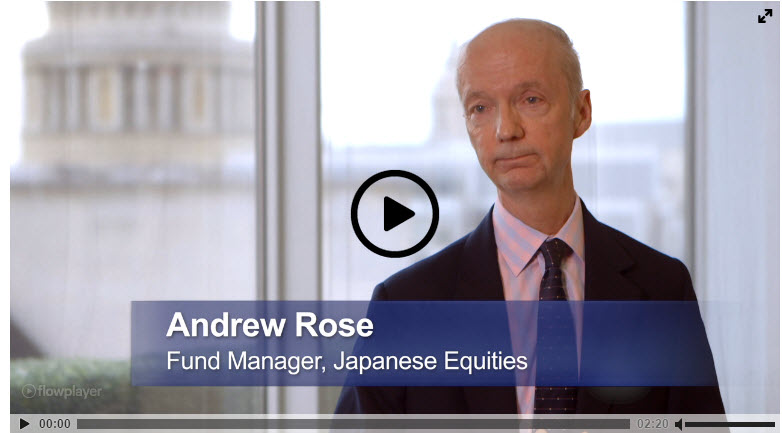
Schroders: 60 seconds with Andrew Rose on volatility hitting Japanese equities
In this video fund manager Andrew Rose looks at whether the recent volatility in global markets might signal the end of the rally in Japanese shares.
23.09.2015 | 16:21 Uhr
For much of 2015 the Japanese stockmarket has been the beneficiary of a benign economic and political backdrop, specifically:
- A second round of quantitative easing
- A snap general election that the Prime Minister won handsomely, which encouraged the idea that his reform agenda would continue.
- A postponement of the planned increase in VAT.
As a result Japan has been one of the best performing stockmarkets year-to-date, in both local currency and in sterling.
That changed recently when Japanese equities finally succumbed to the sell-off in global markets, which has left the shares down about 10% from where they were just a few weeks ago (the Nikkei hit an August closing high of 20808.69. On September 18 it closed at 18070.21)
Does this represent the end of the stockmarket rally?
Japanese shares have been in the ascendency since Prime Minister Abe came to power about two and a half years ago. The newsflow, however, has turned less positive:
- There’s been a pause in Japanese growth.
- The Prime Minister is less popular than he was.
- Global growth prospects are now cloudier, particularly for China and emerging markets.
At the same time it’s worth remembering that there are significant positives:
- Japan benefits from the fall in commodity prices that we’ve seen, particularly the oil priceThe outlook for corporate profits are relatively good and valuations look reasonable.
- There are changes afoot in how companies are managed, which could benefit shareholders.
- Conditions will stay volatile but there are still opportunities and attractions in Japanese equities, which if anything have increased given the recent falls.




Diesen Beitrag teilen: